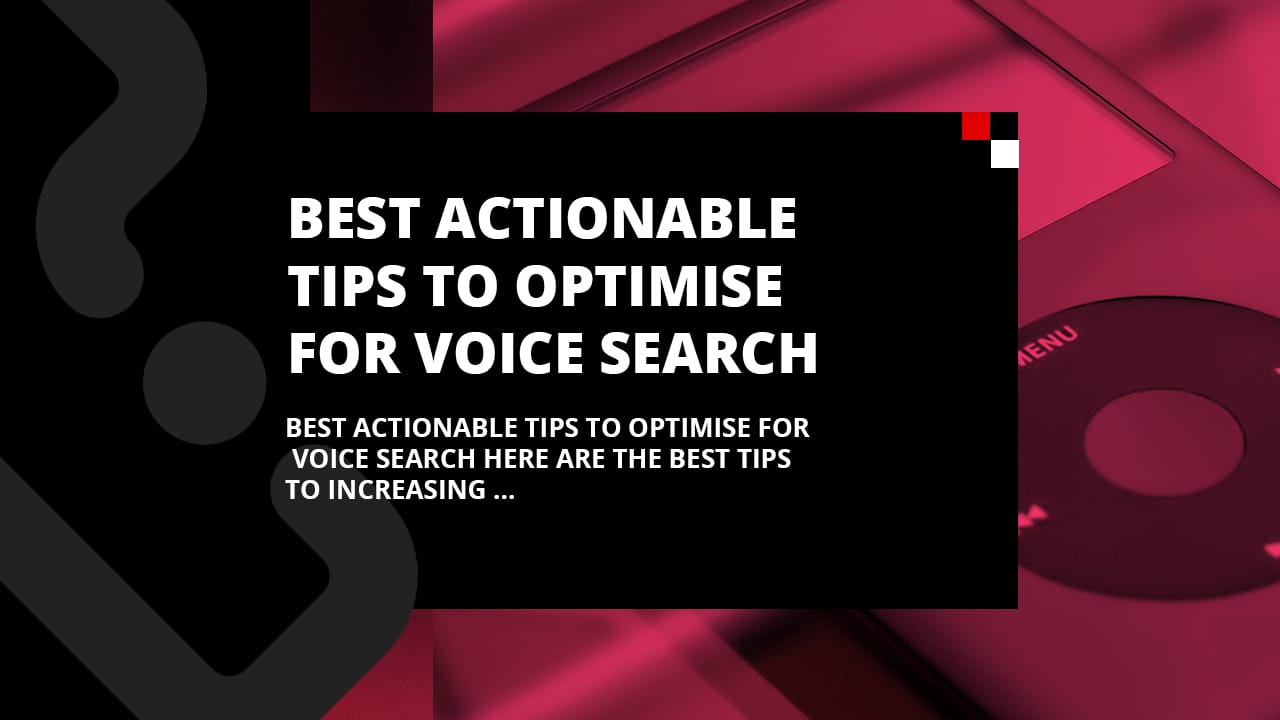Best actionable tips to optimise for voice search
Here are the best tips to increasing online conversions in 2020.
If you are looking to:
– Generate more sales
– Increase basket values
– Gain customer loyalty
Then you will love the new actionable techniques covered in this guide.
Let’s get started.
Do you know that voice search has become very popular recently? If you’re not aware of its importance, then let’s see some useful stats so that you realise the importance of voice search.
- According to Gartner, by the end of the year 2020, 30% of all searches will be done with voice without even interacting with screens.
- In 2016, Google’s CEO announced that 20% of search queries are voice only.
- According to thinkwithgoogle’s voice search insight report 2018, 27% of the global online population is using voice search on mobile.
Considering the importance of these statistics, you should pay attention to voice search optimisation or you’ll stay behind your competitors. So let’s look into our 9 best actionable tips to optimise for voice search.
Target
long-tail
keywords

For voice search optimisation, you should target long-tail keywords. When users perform voice searches, they generally use long-tail keywords or sentences as compared to when they search using a keyboard.
Long-tail keywords help to provide more information to search engines about your content and it also helps in ranking higher in voice search results. You can use tools like AnswerThePublic & BuzzSumo to find important long-tail keywords that are often used in search queries across all search engines.
02
Use conversational
words in your
target keywords
While voice searching, people use conversational words. For example, if they type in Google search, they are more likely to type “best burger in Manchester, on the other hand, with voice search they are more likely to say “Where can I find the best burger near me/Manchester”.
Don’t just rely on ‘long-tail keywords’ only, also make sure your title also contains conversational words as well.
Search engines react differently to voice searches than typed searches. Most keyword research tools don’t include these voice search queries when you try finding your target keywords for voice.
AnswerThePublic, BuzzSumo, and other related platforms serve you with better information when it comes to finding your target voice search queries.

Optimise
your content

Now comes the difficult part! After shortlisting your target keywords, incorporate them into your content. Don’t fill your content with too many keywords, otherwise, your content will low quality to search engine algorithms. Try to stick with your target queries only and place then naturally in your content.
04
Answer those
queries in
your content
Search engines are slowly turning into ‘answer engines’. Just putting your target keywords in your content is not going to help you appear in higher rankings.
- Writing direct and short answers to your target queries is more important than placing the keywords in your content.
- Try to avoid writing lengthy paragraphs when optimising for voice search, so that search engines can find that your content is relevant and then it features your content in its results.

Create an
FAQ page

Adding an FAQ page to your website and optimising it for voice search is an ideal strategy. Adding lots of niche/industry-related questions will turn your website into a resource.
Adopt below-mentioned ways to find questions for your FAQ page:
- Use ‘search question’ tools like Serpstat to find common questions around your target keyword.
- Find relevant questions from Google’s “People also ask” box.
- Explore forums, discussion boards, and comment sections.
- Request your audience to ask questions from you.
After extracting enough information, generate questions and add them to your FAQ page – Making it optimised for target queries
Now follow these tips to further optimise your FAQ page for voice search:
- Write short and compelling answers (Up to 30 words recommended).
- Writing answers in a conversational tone might help.
- Use the target keyword in your question and try to use it in the answer as well.
- Update your answers regularly.
- Questions should be marked properly in header tags (H2 tag is ideal for questions).
06
Optimise for
featured snippets
The majority of smart speakers and voice assistants use featured snippets to answer user’s questions. Therefore, it is important to optimise your content for featured snippets as part of your voice search optimisation.
If you’re wondering how you can get your content in featured snippets, then here’s a simple recipe.
- Include paragraph/list/table based answers to your target questions in your content.
- Perform technical SEO like optimising your HTML source code, metadata, title tag, and headers.
- Write high quality and concise content.

Make your
website
friendly
for mobile

Being mobile friendly is voice friendly. Mobile devices are more commonly used in voice searches than desktop devices.
First of all, you need to improve your site speed if it is lower than what it should be. Few things can be done in order to improve site speed for mobile devices including choosing a hosting service with minimum server response time, avoid redirects on your site, minify HTML, CSS, Javascript among other things.
Also, structure your content according to best mobile SEO practices to make it easy for search engines to crawl through your content. Use URL and page title properly for questions to indicate to the search engine that your content is relevant for a specific target keyword.
08
Optimise for local
voice queries
A high number of voice searches are location-based. People generally use voice search to find local businesses in a specific location. You need to work around your Google My Business profile and optimise your website with location-based keywords as well.
If you’ve already not claimed your Google My Business listing, then do it now. Add all the required details to your profile including local phone number, full business name, business category, operating hours, and complete address. Additionally, you can also:-
- Add your business to Google Maps.
- Focus on Google reviews.
- Target location-based queries like “Which is the best restaurant near me/city name?” in your content on your website and claim your business as one of the best in the area.

Build your
website
authority
Because most of the voice search results come from high ranking websites, so work on building authority of your website as well by building backlinks. Keep practising all these SEO strategies and you’ll get into the top 10 websites eventually.
Once your website enters the first page, it will be a smooth ride to the top in voice search results.

Final Words
As with any optimisation strategy, patience is the key here as well. You can’t expect instant results, but don’t lose hope.
We hope you find these tips fruitful to optimise your content for voice search.

Dean Lynn
Managing Director
Dean is the Founder of Trusted Media and has over fifteen years experience of commercial business marketing. If you ever meet Dean, you’ll quickly realise how honest and straight to the point he is; something his clients love about his marketing approach. When Dean’s not at Trusted Media providing marketing consultancy to clients, he can be found at home with his daughter, who loves creating (breaking) things. Dean never sits still, enjoys eating food (part-time #instafoodie), and finds his happy place in the kitchen baking or in the garden.





